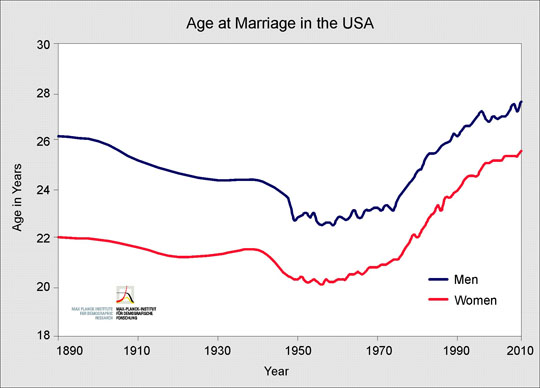Jovialis
Advisor
- Messages
- 9,310
- Reaction score
- 5,860
- Points
- 113
- Ethnic group
- Italian
- Y-DNA haplogroup
- R-PF7566 (R-Y227216)
- mtDNA haplogroup
- H6a1b7
A team of researchers with members from the U.S., Australia and Switzerland has found that male and female humans are evolving in slightly different ways. In their paper published in Proceedings of the National Academy of Sciences, the group describes their genetic analysis of data obtained from the U.K. Biobank and what they found out about human evolution in the process.
As humans continue to evolve, questions have arisen regarding which traits might be changing, and whether they are positive or negative. In this new effort, the researchers obtained data from the U.K. Biobank (a large long-term study being conducted by researchers in the U.K. looking into genetics and environmental exposure as factors in the development of diseases).
The researchers looked only at people 45 and older in order to better understand which traits are being favored (more likely to result in producing offspring). They report that they found a few traits that stood out. One of those traits was a higher body mass index (BMI) for males. They note that because obese men typically have more difficulty reproducing, the higher BMI reading likely indicates a female preference for men with more muscle. For females, the researchers found that women who reproduced at a younger age were favored, which, they noted, was likely related to another finding—that women who reproduce early face reduced educational attainment compared to those who reproduce later or not at all.
The researchers also looked at how much the subjects weighed at birth and found that birthweight traits are so weak now that they are almost irrelevant as traits, and only appeared at all for female babies. They note this is likely due to modern medicine preventing over- or underweight babies from dying or developing problems that could prevent them from reproducing.
The researchers also note that virtually all of the traits in humans that are evolving are quite weak, which means it would take many generations to see much change. This, they further note, is likely due to both modern medicine and social change—shorter or weaker men, for example, are now able to reproduce almost as often or as easily as tall, muscular men, because such traits are not perceived by women as detrimental traits in a possible reproductive partner.
https://medicalxpress.com/news/2017-12-genetic-evolutionary-humans.html
http://www.pnas.org/content/early/2017/12/12/1707227114
I don't think there's any doubt that we as humans are currently still evolving; It's not like we would ever stop. Younger-women reproducing, with low-education attainment doesn't necessarily speak about their intelligence. Moreover, more muscular men being favored for selection, and the last segment kind of contradict one another. I guess they mean it's just obese people not being favorably selected






